United States (San Diego)
Closed-loop, regenerative, urban agriculture: Good Neighbor Gardens is farming the city and feeding San Diego one garden at a time.
The term sharecrop reminds us of an exploitative period during the reconstruction era in the United States. It described an unbalanced arrangement with regard to agricultural land in which a landowner required a share of the crops produced in order for a tenant to use that land.
With full knowledge of this historical context, Good Neighbor Gardens has developed a model using the same term – rooted in the idea of people sharing from abundance, not scarcity, and by choice, not obligation. Through urban sharecropping this group is forging a new legacy with the old term.
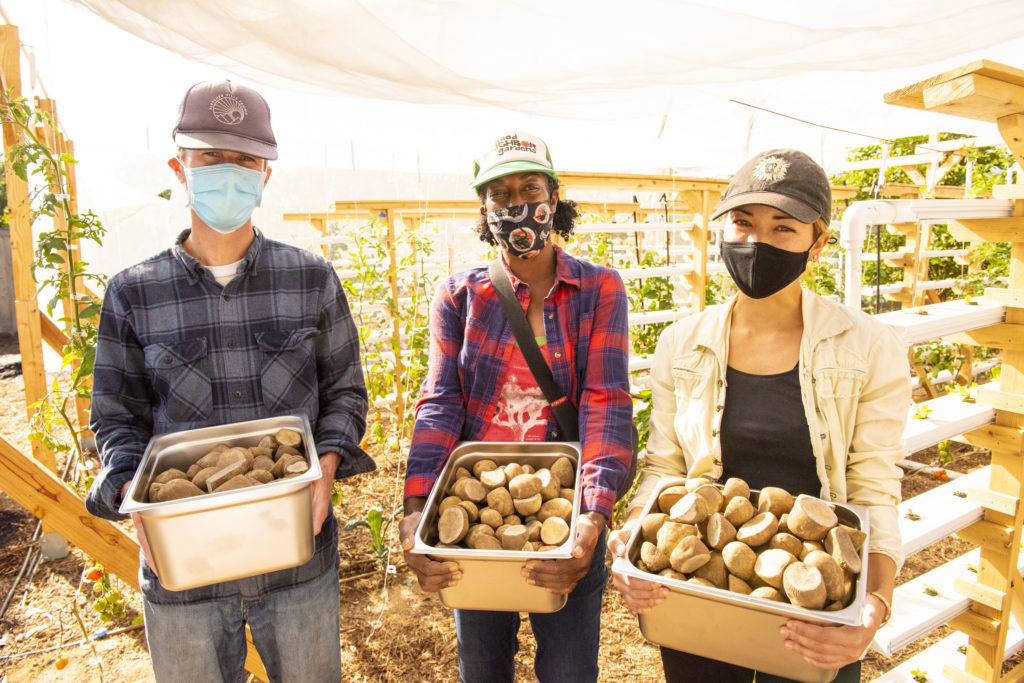
Co-Founder Mia Vaughnes and her team. Photo: Stephen Simpson
Since 2012, Good Neighbor Gardens (or GNG) has been building a community of individuals who share their resources to ensure that everyone has access to the healthiest, freshest food at an affordable price. Co-Founder Mia Vaughnes and her team want to teach the benefits of eating seasonally and promote an alternative way of feeding families. One of her many goals is to expand people’s food vocabulary and palate through growing a wide variety of fruits and veggies, in turn improving their health. Along with the staples, her team is planting things like heirloom rainbow glass corn, chayote squash, Japanese okinawan sweet potatoes, amaranth, tat soi, passion fruit and much more.
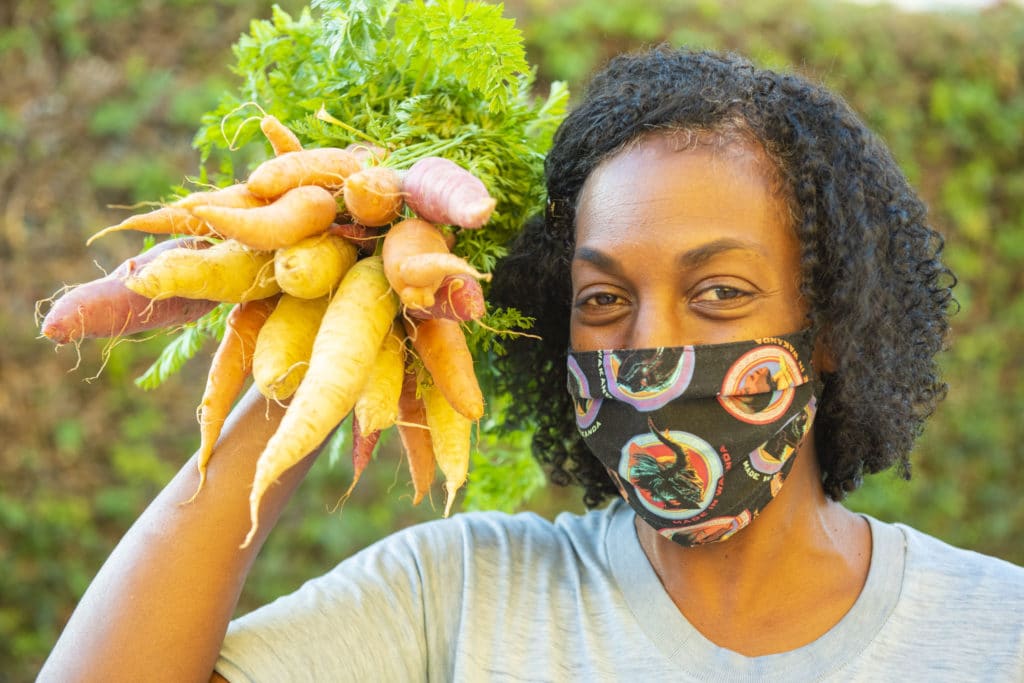
Co-Founder Mia Vaughnes. Photo: Stephen Simpson
The programme works like this: Gracious Neighbors pledge to convert their residential yard into a small-scale urban garden and share the surplus food that is grown on their property with their community through a bi-weekly subscription harvest box. GNG offers to take care of the whole thing from installation to maintenance and harvesting, but home owners who have the desire to get their hands dirty can be taught to tend to their own garden with more independence. GNG simply asks that they continue to share the surplus with the urban sharecrop members. “This is the true goal,” says Mia. “We want to train as many people as we can so they can inspire someone else to become an advocate for food security and land stewardship.” Most home owners end up taking on more responsibility of the garden over time as they become more comfortable and familiar.
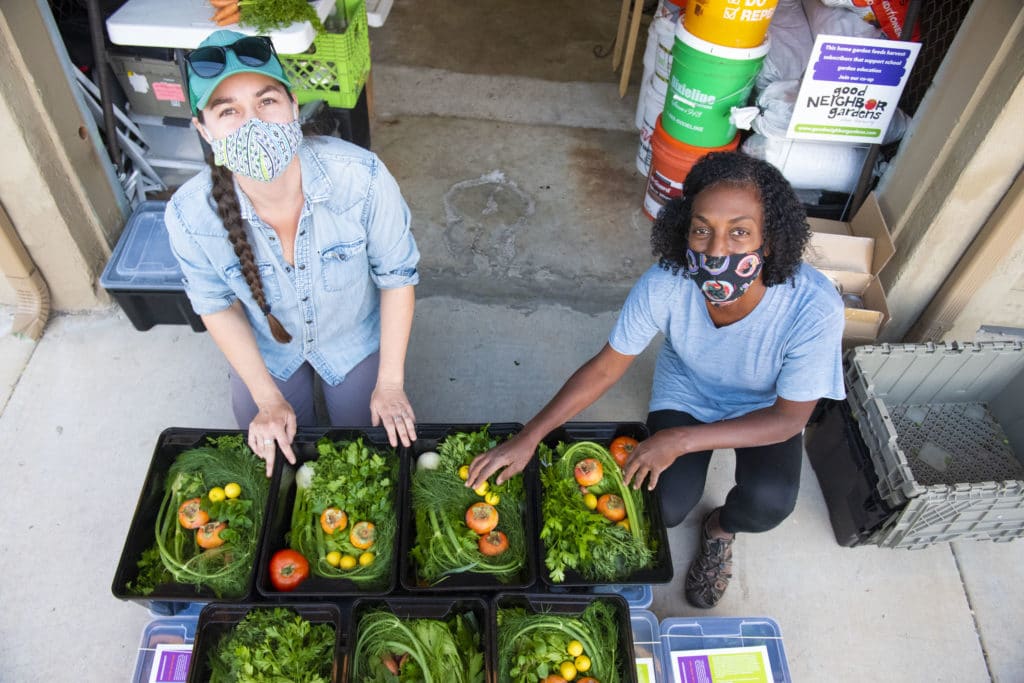
Bi-weekly subscription harvest boxes. Photo: Stephen Simpson
In fact, Gracious Neighbor, Mona Sobel recently shared her enthusiasm and gratitude with Mia, “My garden is amazing! The eggplant overwintered and has fruited already. Strawberries are amazing. I am so happy and grateful! You made it happen and gave me the knowledge and judgement I needed to take over.” Mona regularly contributes what she grows to the harvest boxes and is proud of her new farming skills. It’s Mia’s greatest joy to design beautiful edible spaces, to work with the earth and watch everything develop. She says, “I love the relationships I’ve created over the years and the encouraging testimonies from people who have benefitted from the gardens.”
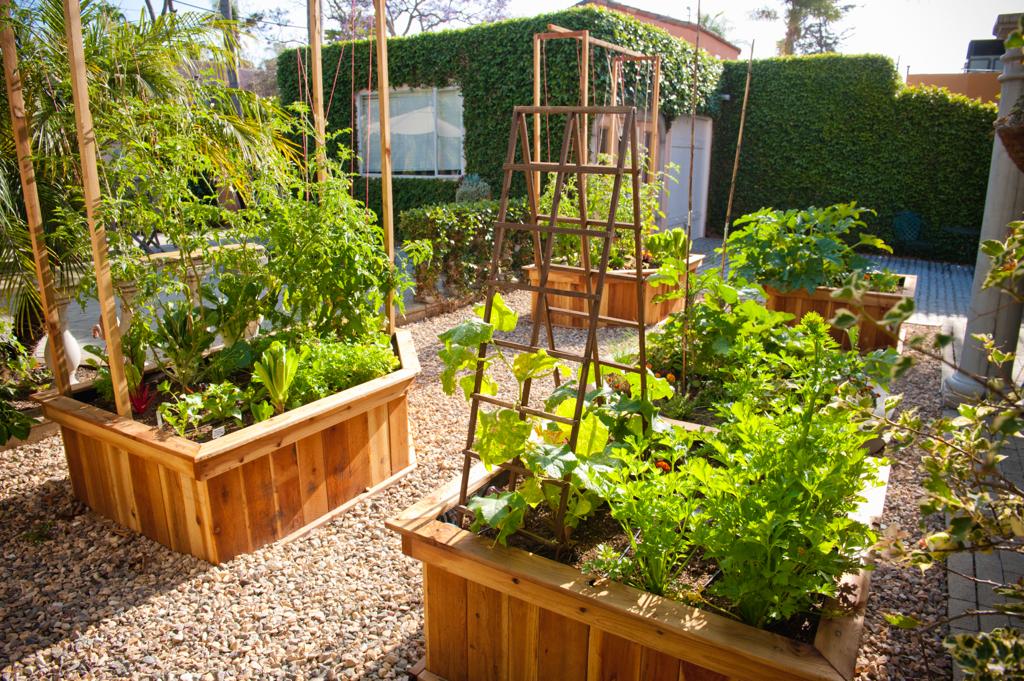
Photo: Esther Leeflang
GNG is also committed to nurturing compassionate stewards of the land through its one-to-one urban farming mentorship program for children and adults because Mia believes everyone should possess the vocational skills of growing their own food, especially those who come from traditionally under-resourced or under-represented communities. What really sets GNG apart is its closed-loop model. Harvest subscribers can opt into the seed saving and compost programs so absolutely nothing goes to waste. “This is so much more than just a produce delivery service,” Mia explains. “It’s a whole new model for turning San Diego neighborhoods into self sustaining hubs of food production. We are creating one big farm where anyone can get in where they fit in.”
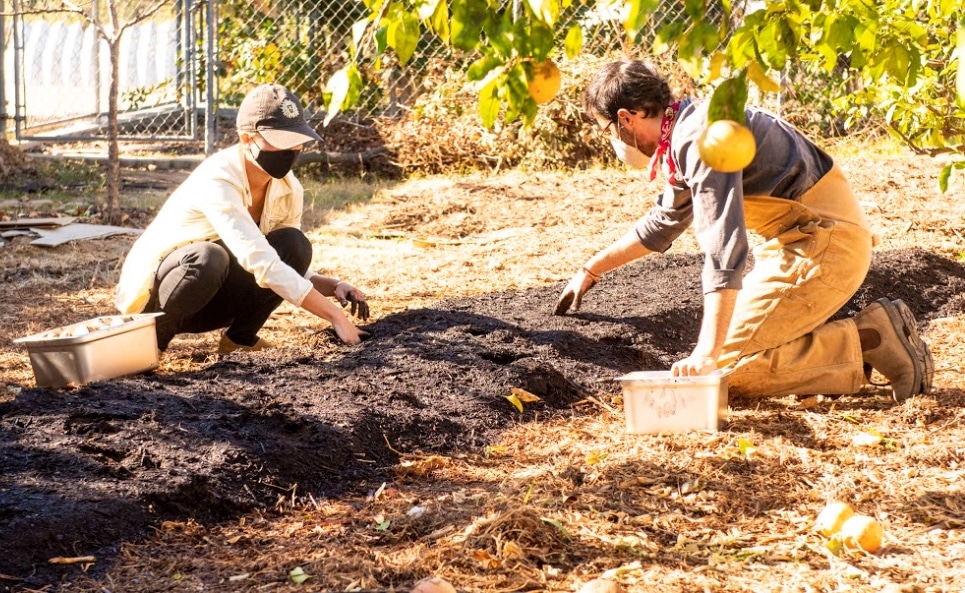
Photo: Stephen Simpson
Mia was raised by a growing and foraging family. As an adult, she learned about her family’s deeply-rooted farming legacy: her great-great-grandfather was a professor of agriculture at the prestigious Lincoln University in Jefferson City, Missouri.
When describing the importance of her project, Mia quotes one of her favorite books, Farming While Black by Leah Penniman: “When we as Black people are bombarded with messages that our only place of belonging on land is as slaves, performing dangerous and backbreaking menial labor, to learn of our true noble history as farmers and ecological stewards, is deeply healing.”
To date, Good Neighbor Gardens has installed and maintained over 280 gardens in the city of San Diego and fed thousands of people through its aggregate harvest distribution program. That’s a huge impact. Mia shared, “I think we are living in a socially disconnected and health starved community. Food can bring us together. It has always been the life-giving, unifying force and food tastes better when shared. It’s the common denominator by which we can work together, side by side to regenerate ourselves and our community”.
AtlasAction: If you want to support Good Neighbor Gardens donate to their Go Fund Me now and help them raise scholarships for under-resourced and under-represented individuals to take part in their Soulful Green Practice education programme. You can also sign up for their newsletter and if you are in San Diego, visit the website to see how you can participate in the urban sharecrop.
►Read more about farming and food.
Bio
Culture lover, world traveler and empathy advocate. Usually caught singing at any given moment.
Project leader
Mia Vaughnes, Founder
Support the Atlas
We want the Atlas of the Future media platform and our event to be available to everybody, everywhere for free – always. Fancy helping us spread stories of hope and optimism to create a better tomorrow? For those able, we'd be grateful for any donation.
- Please support the Atlas here
- Thank you!

